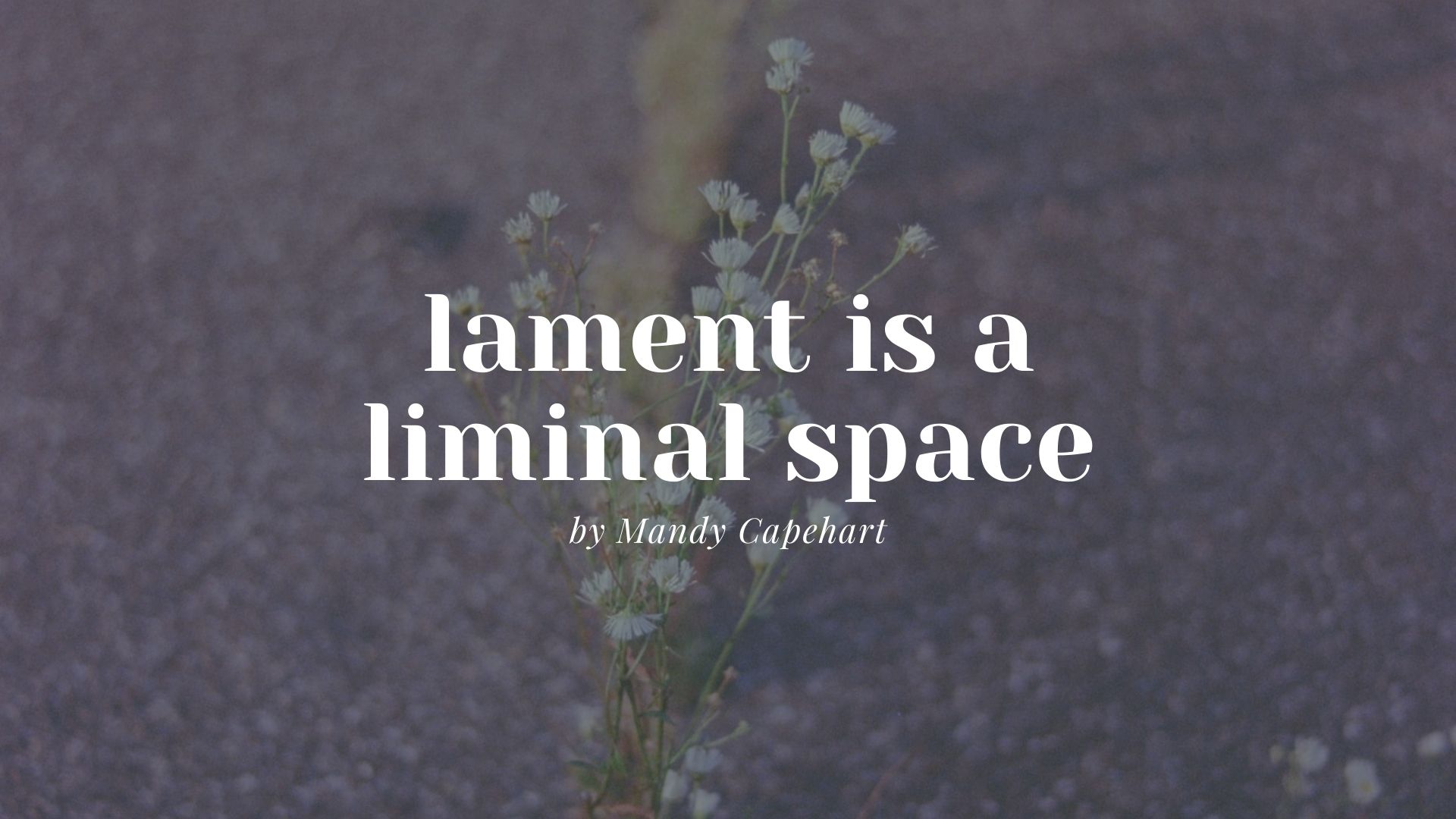
Lament is a Liminal Space
Imagine stepping into a brand new grocery store. You’re here against your will – they’ve closed your neighborhood store and this is the new closest option. But the people are different, they don’t carry your favorite brand of peanut butter, and somehow there are eight different places to find cheddar. It’s unfamiliar and uncomfortable. You already struggled with grocery shopping, and now it is unbelievably (somehow) worse.
And yet, you return, week after week. You find that once you’ve spent a little time between the aisles, things begin to shift. You remember that white cheddar is in the deli, not with the cold cuts. Peanut butter also has two locations, and without thinking, your favorite jar is in the cart and you’re on your way. You’ve become a regular, and things make a little more sense. You even look forward to greeting a few of the employees who helped you find what you needed.
A Sacred Space
Lament is a liminal space. The unsteady ground between your preferred Natural Grocers and the brand new Whole Foods across town. While the trek may take you out of your way, maybe that new grocery stop is worth the effort. But when we believe that our routines are keeping us safe, we will balk at any suggestion to the contrary.
This is grief, y’all. Not to minimize the importance of having a steady grocery shopping routine (trust me; you can grieve a grocery store). But when we recognize something has changed in our lives and we don’t yet know how we actually feel about it (beyond yelling, “THIS SUCKS!”), we may start to feel very trapped, helpless, or even threatened. The very opposite of a safe routine.
But these liminal spaces between our routines and the new things in life are holy ground. This is a sacred space where our faith and certainty can wrestle with one another and disentangle from the lies about who we were, who we are, and who we are becoming because of our grief stories.
Between Faith and Certainty
Faith and certainty are not the same thing – on the contrary, I believe they are at odds. On our paths in life, we are introduced to this tense relationship between faith and certainty through grief – and we can find our restoration in the liminal spaces.
Grief often clouds the road ahead, knocking us clear off course. These in-between places of trying to find our way again often seem to have a marked “before” and “after.” And yet, in the disentangling moments of lament, we find that faith is peace amid uncertainty. These are the very moments the Holy Spirit arrives to unveil the preciousness of our story. Our experiences are happening around us, and now we have a chance to engage and decide what will come of them. It is a willingness to experience our grief and the ongoing reformation of our inner lives. The liminal space is where we choose the new grocery store, despite feeling like we have no choice at all.
Recognizing The Liminal Spaces
As scary an invitation as this may seem, I urge you to find that liminal place of tension in your understanding of grief – the things that make little sense, where you lack all control – and remain present.
Do this with a safe companion or trained therapist if needed. This is not an exercise in exposure to your triggers, so please: refrain from trauma exposure as a method to heal. Rather, see the tension as a moment inviting new insight to your grief story.
Maybe you physically wiggle your limbs and fingers, acknowledging and releasing any discomfort in the moment. Maybe you simply hum a made-up tune with your eyes closed, or practice breathing in for four counts, holding your breath, and then exhaling for four counts, and holding your lungs empty before inhaling again.
Whatever small act of kindness you make toward yourself, you can trust that no certainty will come from this movement. And yet with even this little bit of intention, you will find guideposts back to your path. As you familiarize yourself with your grief story, the things are still as yet unclear, and start to notice the new terrain around you, certainty is no longer the goal.
Becoming present to practice of lament in the liminal spaces offers us a chance to become familiars. We learn to recognize the guideposts when things get off track, and return again as needed without fear. May you find a guidepost in these words for your own grief journey this week.





Responses